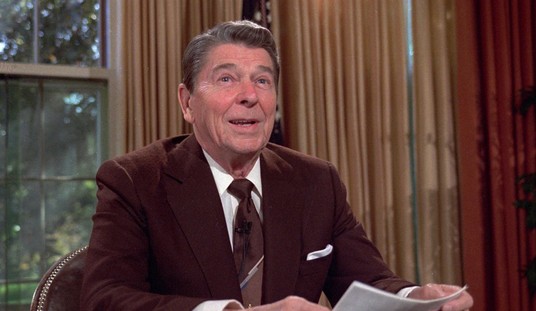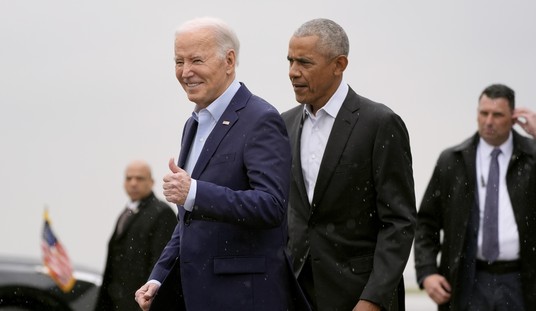On Thursday, the Sixth Circuit upheld the marriage bans in Ohio, Kentucky, Tennessee, and Michigan, the first major loss post-Windsor for gay marriage supporters after a string of victories in the federal courts. The 2-1 ruling from the U.S. Court of Appeals for the 6th Circuit reversed district court rulings that had struck down the gay marriage bans in those states, setting up a probable Supreme Court review now that the circuit courts have split on the issue.
Senior Circuit Judge Martha Craig Daughtrey, the lone dissenter, huffed that the opinion was “an introductory lecture in political philosophy,” complaining that it failed “to grapple with the relevant constitutional issue in this appeal.”
A lesson in judicial political philosophy seemed to be one of the main points of the 64-page majority opinion, which was authored by Judge Jeffrey Sutton and joined by Judge Deborah Cook (both appointed by George W. Bush). Sutton said that a handful of judges had no business making such a decision in the first place.
“Process and structure matter greatly in American government,” Sutton wrote. He said the most “reliable liberty-assuring guarantees” of our system of government require careful attention to the route the United States Constitution outlines for “making such a fundamental change to such a fundamental social institute.”
Of all the ways to resolve this question, one option is not available: a poll of the three judges on this panel, or for that matter all federal judges, about whether gay marriage is a good idea. Our judicial commissions did not come with such a sweeping grant of authority, one that would allow just three of us—just two of us in truth—to make such a vital policy call for the thirty-two million citizens who live within the four States of the Sixth Circuit: Kentucky, Michigan, Ohio, and Tennessee.
Sutton posed the rhetorical question, “Who decides? Is this a matter that the National Constitution commits to resolution by the federal courts or leaves to the less expedient, but usually reliable, work of the state democratic processes?”
His opinion went through the following steps in arriving at the answer to that question, according to SCOTUSblog:
* It ruled that the Supreme Court’s one-line decision in the 1972 case of Baker v. Nelson, saying that a challenge to a state ban on same-sex marriage did not raise “a substantial federal question,” is a still intact precedent, and it binds the lower courts.
* It found that the Supreme Court’s 2013 decision in United States v. Windsor, striking down a part of the federal Defense of Marriage Act, did not disturb that 1972 precedent.
* It relied upon the Supreme Court’s comment in the Windsor decision that the Court was not providing an answer to the basic question of state authority to impose bans on same-sex marriages. It also interpreted that decision as being primarily about federalism, and the need to respect the prerogatives of the states to define marriage.
* It commented that the Justices’ October 6 refusal to grant review of any of the same-sex marriage appeals before it then does not end the debate over state authority in this field.
Sutton wrote, “There are many ways, as these lower court decisions confirm, to look at this question: originalism; rational basis review; animus; fundamental rights; suspect classifications; evolving meaning. The parties in one way or another have invoked them all,” he said. “Not one of the plaintiffs’ theories, however, makes the case for constitutionalizing the definition of marriage and for removing the issue from the place it has been since the founding: in the hands of state voters.” Sutton, who clerked for Supreme Court Justice Scalia, went on to explain his originalist views of the Constitution:
When two individuals sign a contract to sell a house, no one thinks that, years down the road, one party to the contract may change the terms of the deal. That is why the parties put the agreement in writing and signed it publicly—to prevent changed perceptions and needs from changing the guarantees in the agreement. So it normally goes with the Constitution: The written charter cements the limitations on government into an unbending bulwark, not a vane alterable whenever alterations occur—unless and until the people, like contracting parties, choose to change the contract through the agreed-upon mechanisms for doing so … If American lawyers in all manner of settings still invoke the original meaning of Magna Carta, a Charter for England in 1215, surely it is not too much to ask that they (and we) take seriously the original meaning of the United States Constitution, a Charter for this country in 1789. Any other approach, too lightly followed, converts federal judges from interpreters of the document into newly commissioned authors of it.
Sutton pointed out that nobody involved in the case was arguing that the people who adopted the Fourteenth Amendment understood it to require states to change the definition of marriage.
“From the founding of the Republic to 2003,” he wrote, “every State defined marriage as a relationship between a man and a woman, meaning that the Fourteenth Amendment permits, though it does not require, States to define marriage in that way.”
Sutton, in explaining his rational basis review, explained that, “A dose of humility makes us hesitant to condemn as unconstitutionally irrational a view of marriage shared not long ago by every society in the world, shared by most, if not all, of our ancestors, and shared still today by a significant number of the States.” He said that, “one of the key insights of federalism is that it permits laboratories of experimentation—accent on the plural—allowing one State to innovate one way, another State another, and a third State to assess the trial and error.”
Noting that the legalization of gay marriage in the United States only began in 2004, Sutton said it was not irrational for states to take time to see how the new definition of marriage was working out. “Even today,” he said, “the only thing anyone knows for sure about the long-term impact of redefining marriage is that they do not know. A Burkean sense of caution does not violate the Fourteenth Amendment, least of all when measured by a timeline less than a dozen years long and when assessed by a system of government designed to foster step-by-step, not sudden winner-take-all, innovations to policy problems over time.”
Sutton cautioned against using the courts as agents of social change. “For all of the power that comes with the authority to interpret the United States Constitution, the federal courts have no long-lasting capacity to change what people think and believe about new social questions.” The plaintiffs deserve better, he said — earned victories through initiatives and legislation “and the greater acceptance that comes with them.” He added that “It is dangerous and demeaning to the citizenry to assume that we, and only we, can fairly understand the arguments for and against gay marriage.”
Sutton concluded that because of the relatively short timeline of the redefinition of marriage, it should not be unworthy of further debate and voting. “When the courts do not let the people resolve new social issues like this one, they perpetuate the idea that the heroes in these change events are judges and lawyers,” Sutton wrote. “Better in this instance, we think, to allow change through the customary political processes, in which the people, gay and straight alike, become the heroes of their own stories by meeting each other not as adversaries in a court system but as fellow citizens seeking to resolve a new social issue in a fair-minded way.”












Join the conversation as a VIP Member